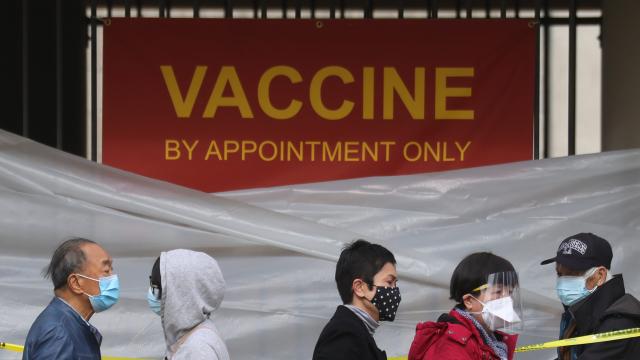New research purports to find a link between receiving an mRNA vaccine for covid-19 and shingles, also known as herpes zoster, in certain people with autoimmune conditions. But while the link may be worth exploring, the average person shouldn’t be worried about this possible risk or pay much attention to misleading news articles covering the research.
The study was published last week in the journal Rheumatology by scientists in Israel. They studied people with autoimmune inflammatory rheumatic diseases, conditions that include rheumatoid arthritis, and compared them to a similar group of people who didn’t have any autoimmune diseases. Out of nearly 500 patients with these conditions, they identified six (1.2%) who developed shingles soon after receiving the Pfizer/BioNTech covid-19 vaccine, compared to zero people in the control group who also got the shot.
The findings, the authors wrote, show that more research is needed to “clarify the association” between the Pfizer mRNA vaccine and shingles, an illness caused by the varicella-zoster virus. Importantly, this doesn’t mean the vaccine gave them the shingles virus.
Lead author Victoria Furer was careful to tell the Jerusalem Post on Monday that they couldn’t say that the “vaccine is the cause” of these cases at this point. At most, she added, vaccination “might be a trigger in some patients.” But that didn’t stop the New York Post from spinning the results in the most clickbaity way possible, with its headline today: “Herpes infection possibly linked to covid-19 vaccine, study says.”

The above is technically true. Shingles is caused by the same virus responsible for chickenpox, a member of the herpesvirus family called varicella-zoster. But when people see the words “herpes infection,” most will undoubtedly think we’re talking about genital herpes, the sexually transmitted infection caused by two other herpesviruses. The Jerusalem Post, for its part, made clear that the study was about herpes zoster, but people would probably recognise the disease more commonly as shingles.
Simply calling shingles a herpes infection is misleading in another way. That’s because it isn’t a new infection but rather the reactivation of the virus that’s laid dormant in the body for years to decades, following an initial case of chickenpox. This often happens due to the immune system weakening as we age, but it’s also more likely to happen at a younger age in people with autoimmune disorders. Once shingles reemerges, it can cause distinctive rashes and sometimes excruciating nerve pain that may continue to linger after the infection is once again beaten back. Luckily, those vaccinated against chickenpox seem to have a much lower risk of shingles, and there’s now an vaccine available specifically for shingles.
On the face of it, it’s not implausible that covid-19 vaccination could increase someone’s risk of a shingles reactivation. There’s some evidence that covid-19 itself can trigger shingles, due to its effects on the immune system or the stress it causes people. And at least some scientists, dating back to the late 1990s, have worried that the immune response caused by any vaccine could temporarily make people more vulnerable to shingles. All of these theoretical risks might be amplified in people whose immune systems are already compromised or who are taking drugs to dampen their overactive immune system, as some of the patients in this study were.
At least one other case report and several anecdotes by doctors have also suggested a link between covid-19 vaccines and shingles. But other experts have rightly cautioned that we simply don’t have strong evidence of a direct causal link between the two at this point. Even in this new study, the link doesn’t appear to be overwhelmingly clear, given that only 1.2% of patients with an autoimmune condition developed shingles after vaccination. Meanwhile, there’s so far no indication of an increased shingles risk following vaccination in the general public.
So yes, while scientists do need to keep studying this connection, it’s unlikely to be anything more than a very rare risk among some people already vulnerable to shingles. And no, the covid-19 vaccine isn’t going to give you herpes.
